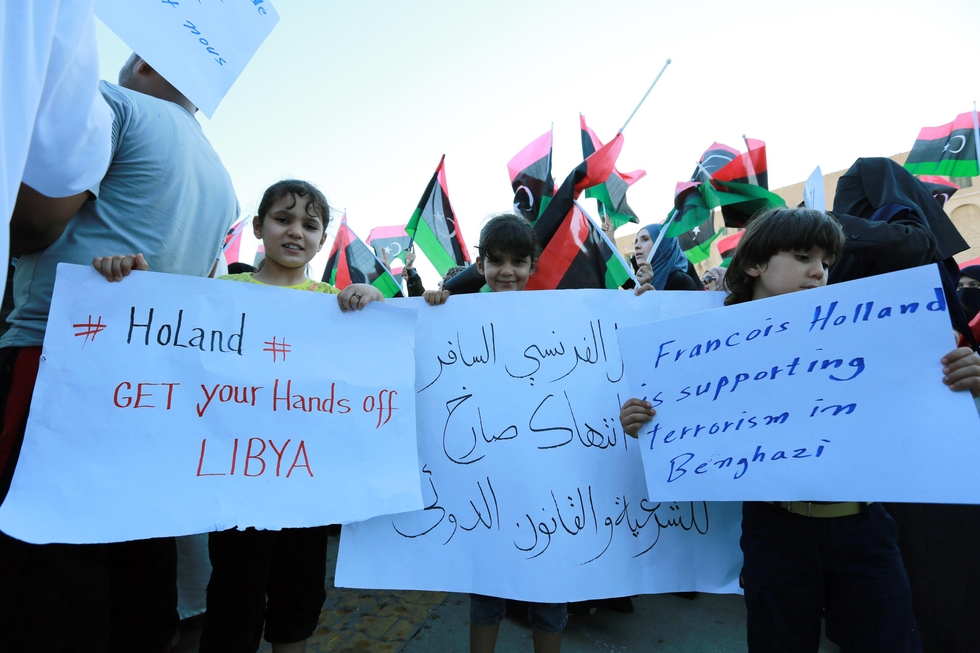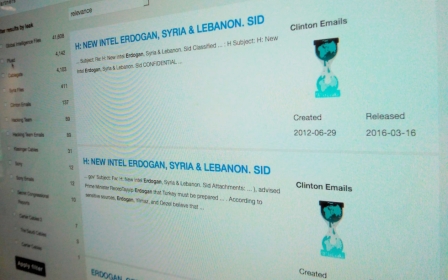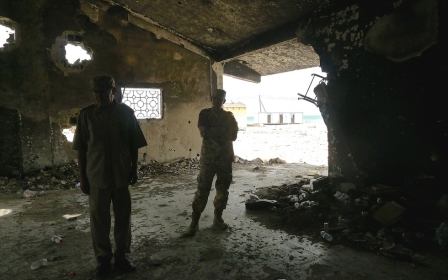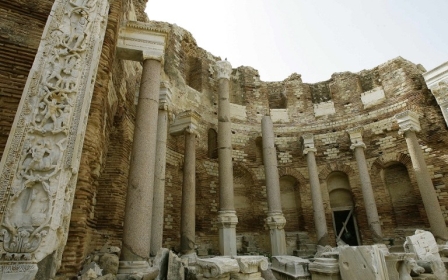Libya's unity government condemns French military presence

Libya's UN-backed government on Wednesday criticised the presence of French troops in the chaos-wracked country, as President Francois Hollande confirmed France has soldiers there after three servicemen died.
The presence of the troops in Libya was a "violation" of the nation's sovereignty, the Government of National Accord said on its Facebook page after Hollande's announcement that its soldiers had been in the country.
The government said it would welcome "any help given to us by friendly nations in the fight against Daesh," using another name for the Islamic State (IS) group, which controls the key Libyan city of Sirte.
But any assistance given "should be based on a request (by the Libyan unity government) or in coordination" with it, the statement added.
Hundreds of people took to the streets of several Libyan cities to protest against the French military presence, mainly in Tripoli and Misrata, some 200km (125 miles) east of the capital, according to an AFP photographer and Libyan television.
"Get your hands off Libya," read one placard held by a child attending the protest in the capital. "No French intervention," read another, written in English.
Protesters waved the Libyan flag as one woman burned a French flag.
Hollande on Wednesday said three French soldiers were killed during a mission to gather intelligence in Libya.
Without revealing when the incident took place, Hollande said the troops died in a helicopter accident while taking part in "dangerous intelligence operations".
Libyan sources gave a different account of events, telling AFP the M17 helicopter was shot down by a surface-to-air missile.
They were "probably targeted by Islamist groups in the Magroun area, about 65km west of Benghazi" on Sunday, a commander of forces loyal to controversial general Khalifa Haftar said.
Another source close to Haftar - who opposes the internationally backed unity government in Tripoli as well as the militant factions that have overrun large parts of the country - said the dead soldiers were military advisers.
Announcing their deaths earlier, Defence Minister Jean-Yves Le Drian praised the officers' "courage of devotion" but gave no details of how they were killed.
Rival militias in Libya have been vying for power since the overthrow of long-time ruler Muammar Gaddafi in 2011.
Several militant groups, including IS, have a presence around Benghazi, which is situated in the east of the country.
IS's main stronghold is the central coastal city of Sirte.
Forces loyal to the unity government have been embroiled in a two-month battle to try to retake the city from the militants.
'Europe's shores at risk'
Western powers have been nervously watching the group's advance on Europe's doorstep.
Hollande said Libya was experiencing "dangerous instability" and noted: "It's only a few hundred kilometres from Europe's shores."
France had previously revealed its warplanes were carrying out reconnaissance flights over the country from the aircraft carrier Charles de Gaulle.
But Paris had never confirmed reports that it had intelligence agents or special forces on the ground.
France, together with Britain, led the push in 2011 for the NATO-led campaign of air strikes that helped topple Gaddafi's regime.
The two countries were later accused of not doing enough to support Libya after the intervention.
British media reported in May that British special forces had taken part in combat against IS in the country's northeast.
The news of the soldiers' deaths comes as France struggles to recover from a massacre in Nice last week, in which a Tunisian resident of France slammed a truck into a crowd, killing 84 people.
IS, which directed last year's attacks on the national stadium in Paris and several nightspots in the capital, claimed the attack.
French investigators have said there is no proof that the driver, Mohamed Lahouaiej Bouhlel, was acting on the group's behalf.
Middle East Eye propose une couverture et une analyse indépendantes et incomparables du Moyen-Orient, de l’Afrique du Nord et d’autres régions du monde. Pour en savoir plus sur la reprise de ce contenu et les frais qui s’appliquent, veuillez remplir ce formulaire [en anglais]. Pour en savoir plus sur MEE, cliquez ici [en anglais].




